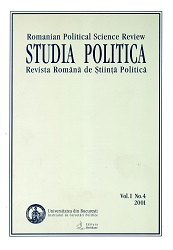Le principe du quod omnes tangit et le problème du consentement politique chez saint Thomas d’Aquin
The principle of quod omnes tangit and the problem of political consent in St. Thomas Aquinas
Author(s): Miruna Tataru-CazabanSubject(s): Politics / Political Sciences, Politics, Law, Constitution, Jurisprudence, History of Law, Civil Law, Government/Political systems
Published by: Editura Universităţii din Bucureşti
Keywords: Government; representation; legitimacy; political consensus; Thomas d’Aquin;
Summary/Abstract: Nous nous proposons pour la première partie de notre présentation d'invoquer quelques-unes des principales études qui ont été consacrées à la maxime "quod omnes tangit ab omnibus tractari et approbari debet". Huit textes contemporains nous ont retenu l'attention, mais notre discussion va se concentrer sur cinq d'entre eux, qui nous ont semblé les plus significatifs. Pour commencer, nous adopterons un ordre chronologique, tandis que notre exposé va suivre ensuite l'ordre de la compréhension. Les cinq textes principaux sont celui de Gaines Post, «Plena Potestas and Consent in Medieval Assemblies. A Study in Romano-Canonical Procedure and the Rise of Representation, 1150-1325», d'Yves M.-J. Congar, «Quod omnes tangit, ab omnibus tractari et approbari debet», d'Antonio Marongiu, qui consacre un chapitre à ce thème, «Il principio della collaborazione dei governati e del loro consenso in assemblea (Q.o.t.)», dans son livre "II Parlamente in Italia nel Medio Evo e nell'età moderna. Contribute alla storia delle istituzioniparlamentari delPEuropa occidentale", de Francis Oakley, «Legitimation by Consent. The Question of the Medieval Roots» et de Brian Tierney, «Consent: Theory and Practice» de son livre "Religion, Law, and the Growth of Constitutional Thought".
Journal: Studia Politica. Romanian Political Science Review
- Issue Year: 1/2001
- Issue No: 4
- Page Range: 1179-1197
- Page Count: 19
- Language: French

